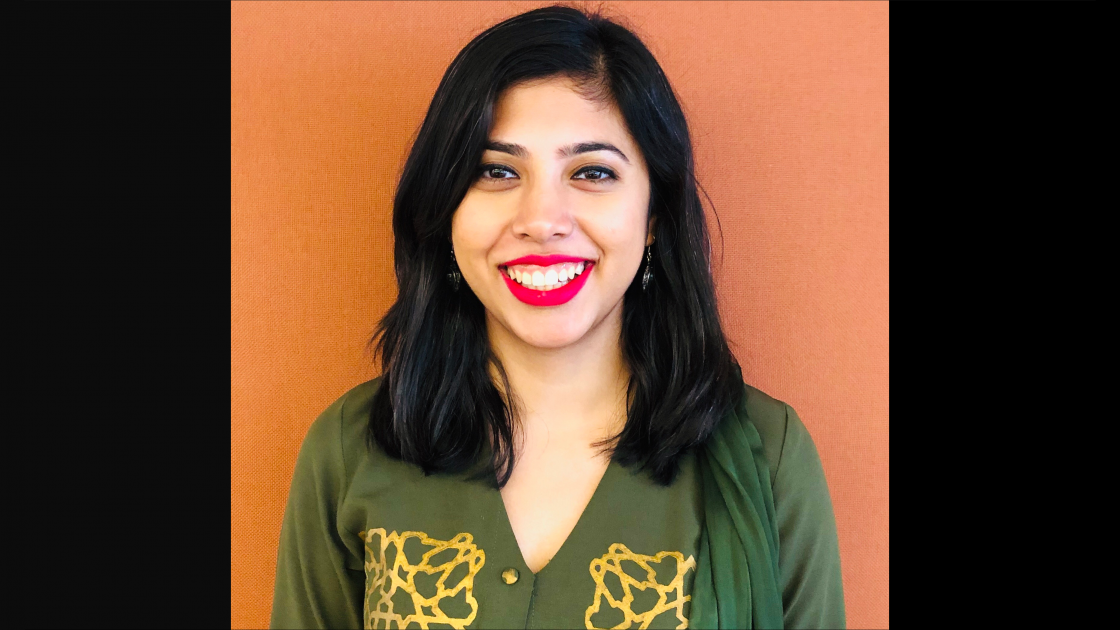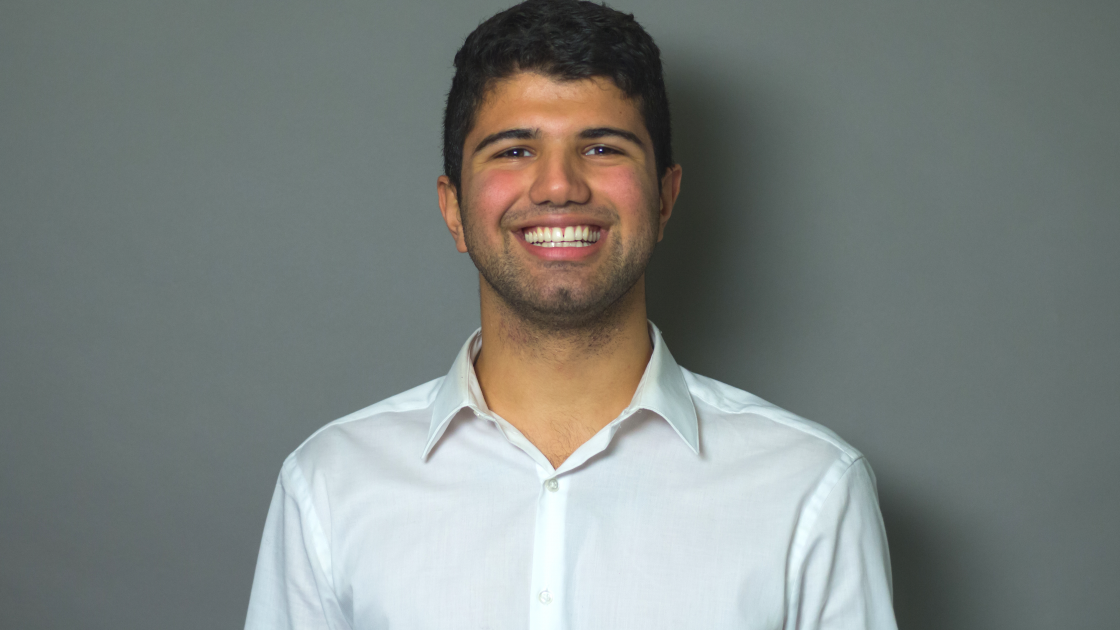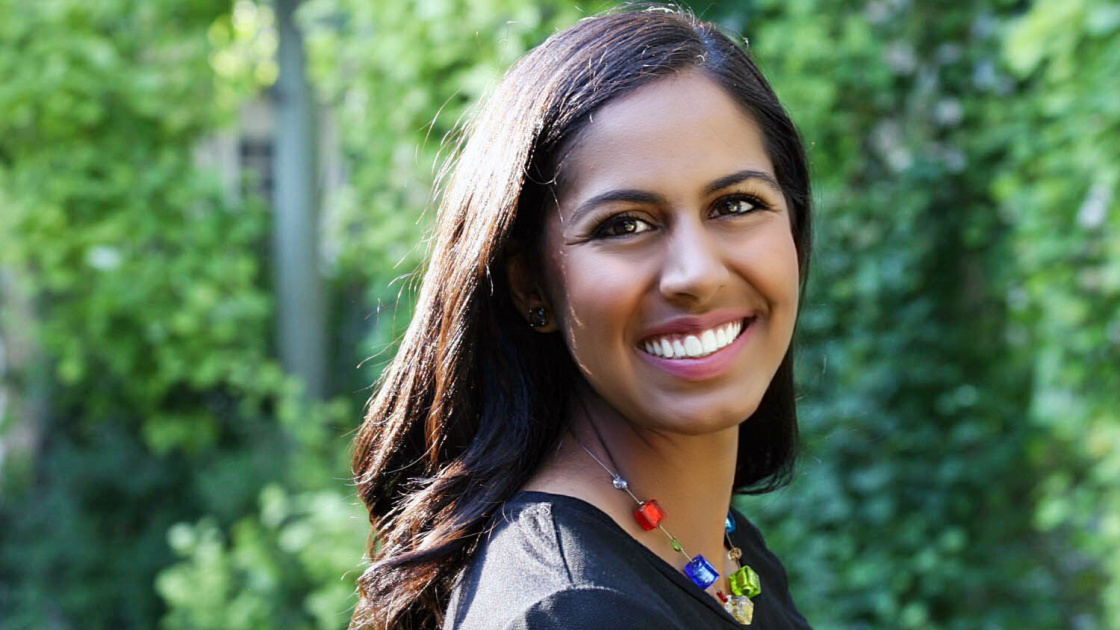While doing research on economic governance in her native Bangladesh, Sumaiya Talukder started wondering why good ideas don’t always get translated into good policies.
“I realized that we did great research but then the government didn’t always adopt our findings or our recommendations, and I was really curious about why that kept happening,” says Talukder, explaining that this is what motivated her to apply for McGill’s new Master of Public Policy (MPP) program.
Arriving at the Max Bell School of Public Policy in September 2019, Talukder was one of 31 talented early-career professionals selected to join the inaugural MPP class.
For Ruhee Ismail-Teja, a Calgarian who already had over six years of policy experience under her belt, the decision to do the MPP had more to do with broadening her skills.
“I was excited by the fact that I didn’t have to pick a specialty – that I could be sort of a generalist in policy,” says Ismail-Teja, who has a background in government relations. “Being able to take just one year off and then return to a career that I absolutely loved was wildly appealing to me.”
Aria Yousefi, a business major from B.C., was also drawn in by the idea of completing a master’s program in only 11 months, as well as the opportunity to combine his interests in a practical way.
“I wanted to take my business skills and apply them to the public sector. Public policy seemed like the right fit because it was an intermediary between economics and political science, and I thought that it could open a lot of doors.”
Testing a new curriculum
Part of McGill’s Faculty of Arts, the Max Bell School of Public Policy was established in 2017 thanks to a $10-million gift from the Max Bell Foundation, which bears the name of a legendary McGill alumnus, entrepreneur and philanthropist.
In his introductory letter as the School’s director, Professor Christopher Ragan wrote that, “Throughout his remarkable life, Max Bell understood that some risks were worth taking.” In Ragan’s view, the risks involved in building a new policy school and rethinking how we train policy leaders are well worth the reward of a better future.
“We were absolutely guinea pigs, but the flip side of it meant that we got a lot of say and input into the program,” says Ismail-Teja, reflecting on how it felt to be among the first to try out Ragan’s innovative and interdisciplinary curriculum.
The MPP students had a jam-packed weekly schedule that included core courses on topics like ethics, media literacy and government structures; case studies of specific policy challenges such as the train derailment in Lac-Mégantic; and workshops on applied skills like data analysis and team building. Networking events and visits from high-profile guest speakers – like Canadian ambassador to China Dominic Barton, and former premiers Rachel Notley and Christy Clark – were also important features of the program.
“It was so busy,” says Talukder, explaining that she and her classmates would often stay on campus late into the evening, long after faculty and staff had left.
Even when it was time to take a break and explore the city, policy would creep back into the conversation. “Sometimes you would find yourself on a patio talking about policy, and that was just the nature of the program. We were very steeped in it,” says Ismail-Teja.
For Yousefi, one of the highlights of the year was a field trip to watch the New Hampshire Democratic Primary unfold, which included stops at Dartmouth College and at campaign rallies for Senators Bernie Sanders and Elizabeth Warren.
“That was a really memorable experience,” says Yousefi, who appreciated the opportunity to better understand the political context in the United States.
A real taste of the policymaking process
In designing the MPP curriculum, Ragan and colleagues worked to strike a careful balance between theory and practice – a goal reflected in the diversity of the program’s teaching faculty, which includes a mix of academics and policy practitioners.
“Having practitioners that could speak to both how systems work as well as how people work I think really set us up for success,” says Ismail-Teja, adding that “the people side of the policy process” is something you can only really get from practitioners.
Another central element of the program design is the Policy Lab, which runs from January to July. Working in small groups, the MPP students take on a real policy challenge issued by a sponsor organization and present their recommendations at the end of the year.
“The Policy Lab is intentionally a process with a lot of ambiguity, much like policy work would be in the real world,” says faculty lecturer and Policy Lab coordinator Nathalie Duchesnay, who helped develop this component of the program. “It allows students to really imagine themselves in the work they plan to be doing after their graduation.”
Duchesnay explains that the sponsors are “putting a lot of stock into what the students are doing, the research they’re finding and the ideas they’re coming up with,” which makes the process much more exciting and engaging for students.
Talukder was part of a team sponsored by Natural Resources Canada to find policy options for an eventual transition to a circular economy. “They were really interested in what we were doing, even after COVID hit,” she says. “And because of their interest, we were motivated to constantly improve our research.”
Returning to the workforce
Like all McGill students, the MPP class had to abruptly shift to remote learning in March 2020.
“The School was open to feedback and we had a lot of town halls to talk about the ways in which the program could adapt during the pandemic,” says Yousefi. Like Ismail-Teja and Talukder, he found virtual classes more exhausting but was grateful for the School’s help during this period, which included a COVID-19 support fund for those struggling financially.
After their virtual convocation last fall, the MPP graduates returned to the job market and were remarkably successful despite the economic downturn. “They are now working at prestigious organizations across Canada and the world, including the World Food Programme, HM Treasury, KPMG, and Martin Family Institute,” says Ragan, adding that everyone who was looking for work has found it.
Yousefi landed a job as a senior policy analyst at the Canada Mortgage and Housing Corporation (CMHC), thanks in part to some connections he made in an MPP course taught by the organization’s CEO. He says that the CMHC has even been using one of the policy briefs written by an MPP Policy Lab group – Ismail-Teja’s group, in fact – to inform their work on housing for seniors in rural areas.
The Policy Lab also played a role in Talukder’s post-graduation plans. Her experience with natural resource policy helped her secure a prestigious six-month fellowship working on clean energy innovation at the Canada West Foundation – part of another initiative funded by the Max Bell Foundation called the Policy Scholars program.
“One thing I learned is that it's not just the politics, it's also the process,” says Talukder, when asked if she now has a better understanding of the implementation barriers she encountered in Bangladesh. “The government is accountable for the decisions they're making so it's not easy for them to work by trial and error. They can’t just pilot something and back out of it.”
Now the policy and government relations manager at the Calgary Chamber of Commerce, Ismail-Teja is back to doing what she loves: thinking about and solving complex problems. She says the program gave her a better sense of how the intricacies of policymaking can differ from province to province.
“In a field like policy where decisions need to reflect the diversity of perspectives and serve a broader group of people, having those collaborative collisions in the classroom was really important and I think absolutely made me a better policy practitioner.”




